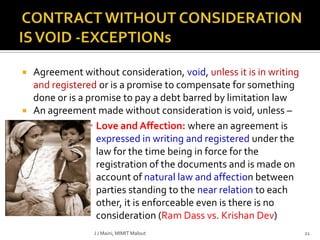The document discusses the key elements of consideration according to Indian contract law:
1) Consideration must move at the desire of the promisor. It must be done at their request.
2) Consideration can move from either the promisee or any other person, including a stranger to the contract.
3) Consideration can be past (before the promise), present (at the time of promise), or future (after the promise).


























